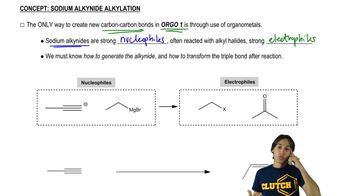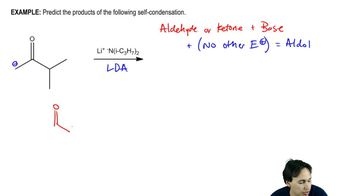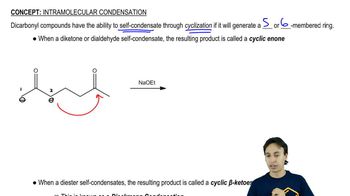Phenylacetone can form two different enols.
(a) Show the structures of these enols.
(b) Predict which enol will be present in the larger concentration at equilibrium.

 Verified step by step guidance
Verified step by step guidance Verified video answer for a similar problem:
Verified video answer for a similar problem:



 2:26m
2:26mMaster Formation of Enolates with a bite sized video explanation from Johnny
Start learning